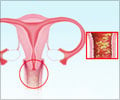
"With the current state of diagnostic testing, we are handicapped, making decisions based on limited or nonspecific information – in situations ranging from helping individual patients to identifying broader public health threats," said Angela M. Caliendo, MD, PhD, an infectious diseases physician, lead author of the paper and executive vice chairman of the Department of Medicine at the Warren Alpert Medical School of Brown University, Providence, R.I. "It is critical that we not only invest in the development of new diagnostic tests, but that we also work to ensure these new tests are fully integrated into patient care."
Specifically, IDSA is calling for:
• fiscal incentives and streamlined regulatory pathways to make it financially and logistically viable for companies to perform diagnostics research and development in areas of greatest unmet need,
• improved clinical research infrastructure to accelerate diagnostics development – for example providing critically needed specimens that researchers and companies can use to make sure their tests provide accurate results,
• funding for outcomes research to demonstrate the clinical value of diagnostic tests, increasing the likelihood they will be used by doctors and hospitals, and
• appropriate reimbursement, additional supporting infrastructure (such as information technology) and education for those who would utilize the diagnostics.
The Need for New Tests Currently, some of the most important diagnostic tests available can take days or even weeks to return a result, a timeframe that could be shortened to an hour in some cases, experts say.
"Delayed diagnosis puts us at an immediate disadvantage against infections," said Dr. Caliendo. "Not only is this detrimental for patients and their doctors, it also contributes to unnecessary healthcare costs through unneeded treatments, hospitalizations and isolation of patients."
For example, half of patients who see their doctors for acute upper respiratory infections receive antibiotics – even though most of those infections are viral and do not benefit from such treatment. Currently, there is no test that can easily, accurately and inexpensively help physicians determine the cause of such an infection. Better, faster tests could guide doctors to the correct treatment more quickly and significantly reduce the number of patients receiving antibiotics erroneously, which contributes to antibiotic resistance. Such tests also would ensure patients are getting the best treatment for viral diseases – including HIV, hepatitis C and the human papillomavirus (HPV) – and quickly identify the cause of widespread problems such as community acquired pneumonia, which can be viral or bacterial.
Advertisement
Infectious diseases physicians, the experts in this field of care, can serve as a bridge between the laboratory and the health care provider to ensure the proper use and interpretation of diagnostic testing.
Advertisement
Source-Eurekalert









